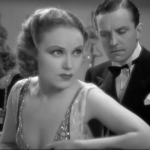 |
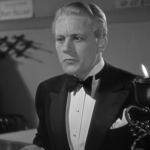 |
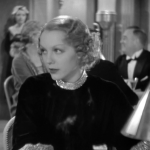 |
| Ann Carver Fay Wray |
Bill Graham Gene Raymond |
Carole Rodgers Claire Dodd |
| Released by Columbia | Directed by Edward Buzzell Run time: 68 minutes |
||
Proof That It’s a Pre-Code Film
- A woman… with a college degree! And… and she doesn’t want to sit around the house! It’s madness I tell you!
- A breach of promise suit in the film revolves around whether or not a man can tell if the girl he’d proposed to was black. And all of the gross racism that comes with that.
- Notably for the period, there’s a long sequence where Ann and Bill talk about their decisions intertwined on their twin bed.
- In one particularly gruesome section, we see a woman get choked to death by her own necklace.
Ann Carver’s Profession: Beauty & The Beast
“What do you want to work for?”
“I don’t know. To keep busy, I guess. I’ve got a profession, why not use it?”
My wife is a workaholic. I’m not. This has been a bone of contention, as I do whatever is in my power to not take work home with me or leave late. My wife has the opposite feeling– she recently spent an entire Sunday glued to her work laptop.
I bring this up as it connected me quite handily to Ann Carver’s Profession, a pre-Code tale of the vagaries of female success. It takes two college lovers– a spoiled, popular athlete from a rich family named Bill and Ann Carver, a girl working her way through her juris doctorate doing dishes– and shows what happens when a time wounds a heel.
Ann typically tries to minimize her own ambition as the two marry and Bill sets to work his way up in an architectural firm. But Ann is bored, and drags Bill to social gatherings to try and give herself a reason to wake up each morning. Bill, sensing her unhappiness, obliges, and when she lectures a judge about trial strategy one night (“Women seldom are in sympathy with each other. A woman never gives another the benefit of a doubt.”), she ends up with a job. Both of them couldn’t be more thrilled.
That’s until a sensational trial lands Ann on the front page and a $5,000 check from an appreciative client. Their life goes upscale, and Bill feels left behind– on his paycheck alone, he can’t even afford to pay the help in their beautiful new mansion. He becomes a prop at dinner parties where she spends the whole evening discussing work, and is frustrated as he tries to vent his feelings. He’s thrilled for his wife but wants her time and respect. Their tiff leads to this nice bit of introspection on Ann’s part:
“Sometimes I feel like chucking the whole business…. No, I don’t. I don’t know why I lie like that. I didn’t mean that! I couldn’t chuck it! You wouldn’t want me to, would you, darling? You wouldn’t want me to give it all up!”
“Not if it makes you happy.”
“Oh, it does, Bill! The importance of it. The excitement, the flattery, the publicity– all the cheap, mean, petty phases of it. I love it all! It seems to have crawled into my ego. Terrible, isn’t it?”
Ann is ambitious. The headlines love her as the savvy woman lawyer in the William Fallon mode who clearly knows that the key to success in the courtroom is to know your jury, and then play them like a violin.
Fay Wray is an actress who I adore, but I’ve also always found her range to be a bit limited– she doesn’t do subtlety well, so her characters can seem rather flat. That works perfectly for Ann who is so desperately consumed by her desire for fame and fortune that it’s impossible for her to hide it. Even that quote at the top of the review, where she writes off working her way through law school, is said with a flatness that belies the truth; she loves Bill, but knows that she has to conceal what she really wants. One imagines that a lot of women felt this way then.
After their spat, Claire Dodd as Carole Rodgers (“The hottest white girl in town!” we’re assured) swoops in to play the Claire Dodd part of the picture, further pushing that wedge between Ann and Bill. Bill decides to take work as a crooner to cash in on his celebrity as a college football star (definitely not for his singing ability) and Ann is aghast. One could be tempted to fault Ann for not backing up her husband’s desire to be a singer when he’s always advocated for her to follow her desires to have a career, but that was under a caveat– “as long as it makes you happy.” Bill’s objective is to try and rid himself of his sudden inferiority complex, something he’d never known before and is dealing with in the worst way possible.
Spoilers.
Ann falls behind at work, and in a pique of anger at her husband, she goes to the nightclub to watch him sing. She sees Carole kiss Bill, but misses his reprimand, enraging her. Here, Ann is callous and aggressive, angrily throwing a handful of change at Bill during a song. Considering the way most of the woman protagonists react simply with hand wringing and a few discreet sobs– don’t get me wrong, Wray does her fair share of this too– having Ann here react aggressively and impulsively gives her character an added touch of volatility that many of these parts lacked.
Bill descends into alcoholism and ends up living with Carole, though he tries his best not to consummate their seedy relationship. Ann also can’t concentrate, and it’s apparent they’re both lost without each other. A chance (and fairly nasty) death makes Bill look guilty of murder; who will defend him? You only get one guess.
The trial at the film’s climax is revolting. Sample of the previously-impenetrable Ann promising the jury she’ll quit her job if they don’t hang him because she just loves hims so darned much:
“Pity any woman who has in her possession the most precious thing in life and blindly sacrifices it!”
Like the ending of Female where the woman’s acquisition of the sexist pig of a lover is conflated by the winning of an actual pig, Ann Carver’s Profession uses our knowledge of Ann’s prowess to underscore that she’s not learning a lesson so much as succumbing to it. She’s not a flawless character by any means, as her ambitions do lead her to overlook her husband. But he clearly can’t handle not being the center of the universe. He’s lost if he’s not the most important person in the world, even as he tries to desperately pretend it isn’t true.
This repudiation of Bill’s goddamn male ego is driven home at the end, where his wife’s unfettered support leads him to open his own architecture firm. (I know when I want my bungalow designed, I want it designed by the guy who got off from a murder charge because his wife blamed herself for his possible murderous ways.) The last lines have him threatening to lock Ann up and never let her leave– which, of course, he’s pretty much already done. She insists on “a little sun and air”, which he flips to “a little son; an heir.” Oh geez.
The message is clear, hammering home the idea that Ann’s life will forever be in subservience to her husband less he has another ugly meltdown. Is it sexist because it Ann’s profession contributes to the troubles in her marriage? No, that’s only realistic. Is it sexist because Ann has to throw her career on the pillar to satiate her husband’s privileged ego? Yeah. But the movie doesn’t make it a sudden death-of-the-soul like Ann Vickers– here it’s an outgrowth of a character’s flaws combined with the thudding of the patriarchy crushing all in sight. You have little doubt that if Bill met the same fate as Carole, Ann Carver would be back in the courtroom the very next day with minimum hand wringing.
End spoilers.
The film’s best moments are towards the beginning when Fay Wray gets to show off her lawyering. We only get two trial scenes, and the second is the tear jerk ending, but the first one and seeing her argue tactics with an array of subservient men are treats. And that first trial scene is a shocker, too. Based on the mid-20s divorce trial of Rhinelander v. Rhinelander where a rich kid was pressured to divorce a servant he’d married. The girl was of mixed race heritage, and the whiff of miscegenation turned the trial into a showcase of the current (repugnant) racial mores. This included a session in the judge’s chambers where the jury got to ogle her bare shoulders and thighs to determine whether the impudent Rhinelander should have been able to tell if she was black by her skin color. The jury in that trial ruled in her favor, as her husband was clearly just trying to escape a socially inconvenient marriage.
The trial in the movie is just as sensational, as Ann represents the rich kid trying to weasel out of his engagement to a colored girl who may have been passing. The defendant is clearly still salivating over the woman who is suing him– which is pretty risque for the time. Ann’s grandstand, which involves a number of women in swimsuits and the opposing attorney utterly embarrassed is a blast, and Wray manages it without a hammy wink.
Besides the performances, Ann Carver looks great, too. Director Edward Buzzell and cinematographer Ted Tetzlaff let Wray dominate the frame, but also imbue a sense of disrupted tragedy as Raymond’s Bill spirals into meaninglessness. And Claire Dodd’s Claire Dodd here is peak Claire Dodd– i.e. it’s good stuff.
Ann Carver’s Profession won’t win any awards for being progressive, but what Wray does is more inspiring than what the film’s melodramatics would belie. It’s a stylish little film that’s undoubtedly worth a gander.
Gallery
Click to enlarge. All of my images are taken by me– please feel free to reuse with credit!
Trivia & Links
- Andre Sennwald in the New York Times rolls his eyes at this one, reading off the plot like a checklist and finishing with:
But almost everything in “Ann Carver’s Profession” is too predictable for comfort, and it makes a generally dull entertainment.
- Robert Riskin, who wrote this film, would marry Fay Wray in 1942. The marriage would produce three children and last until his death in 1955.
Awards, Accolades & Availability
- This film is an obscure one, but does play on TCM every so often. I wish you luck in finding it!
More Pre-Code to Explore


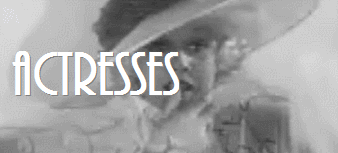
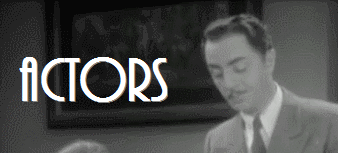
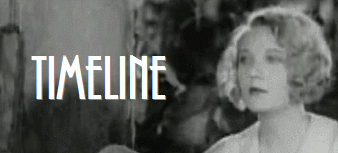


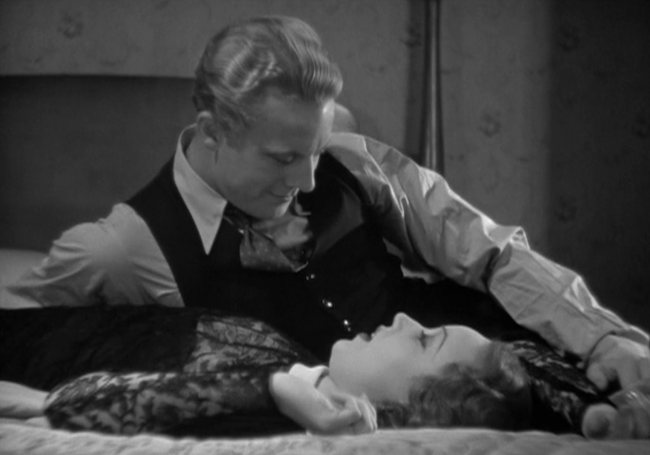
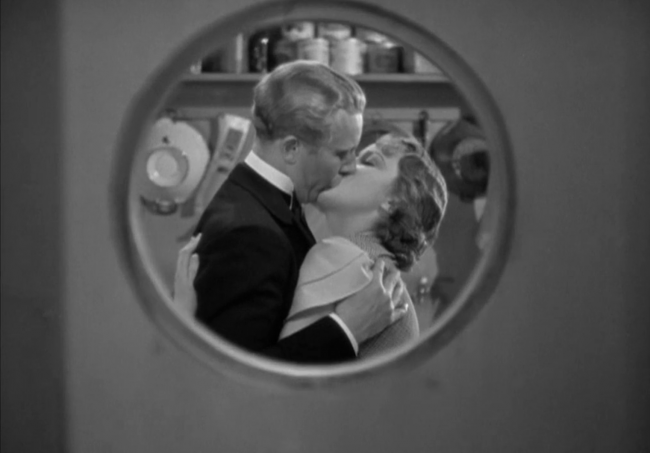
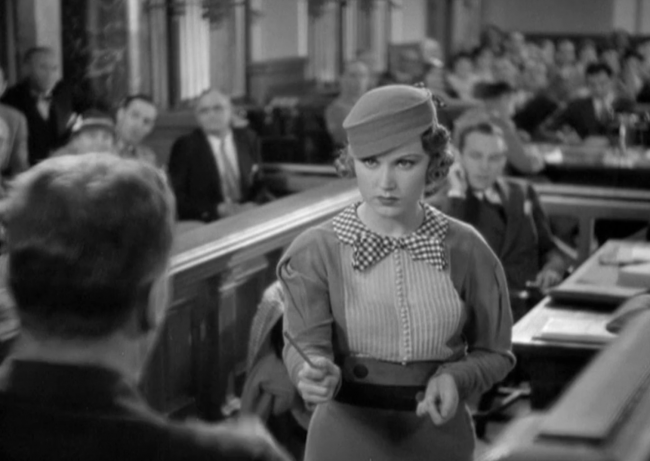
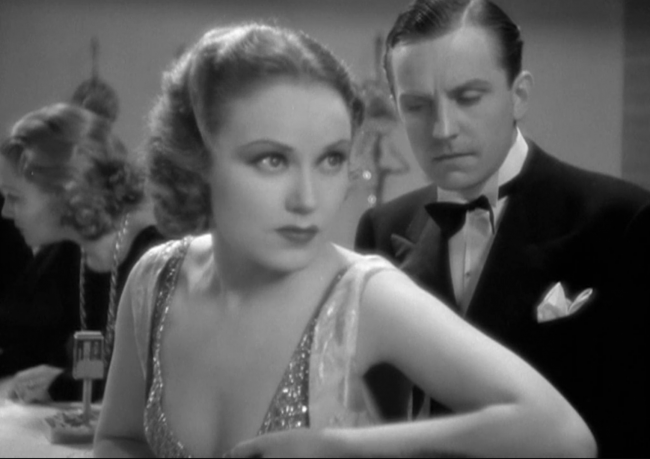
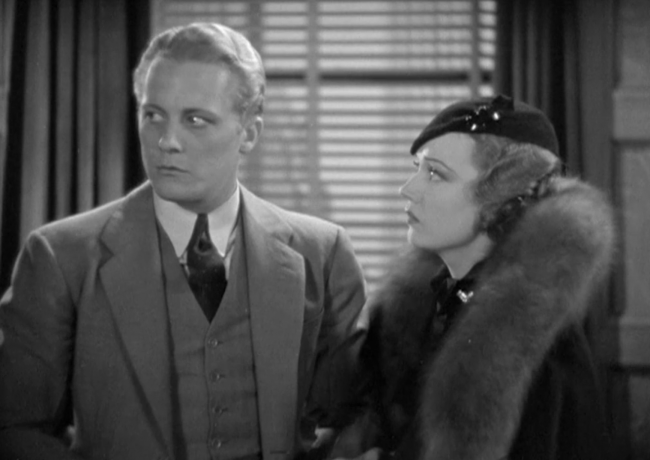
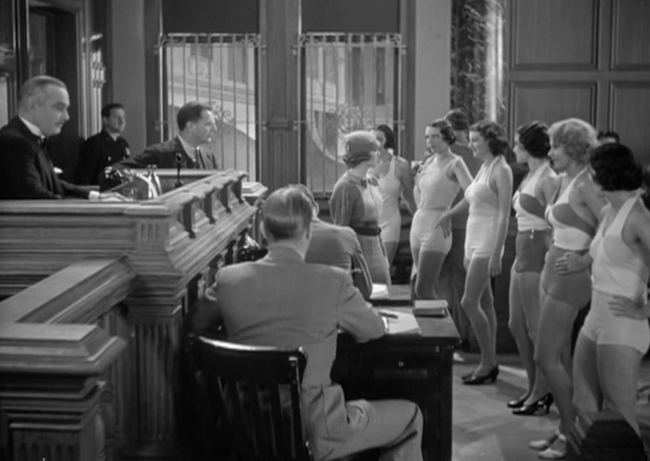
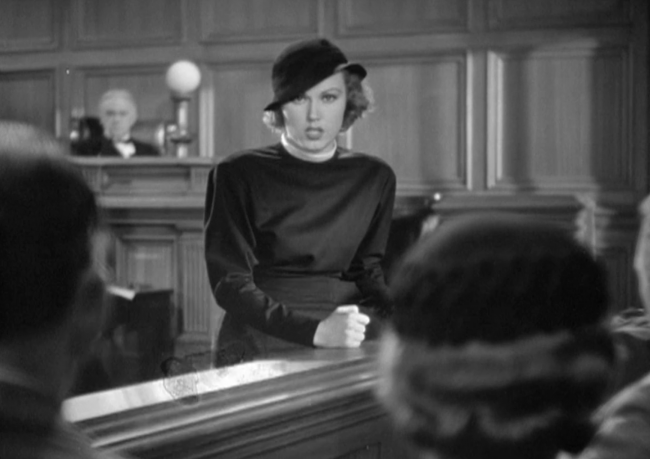
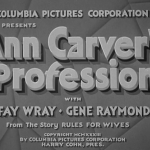
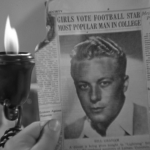
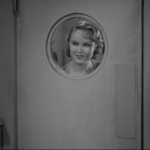
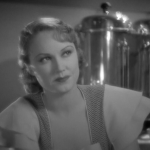
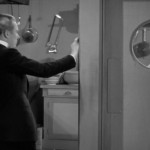
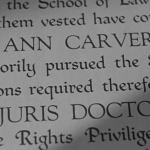
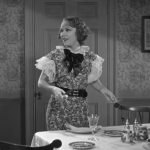
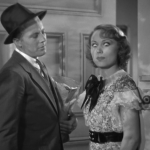
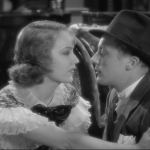
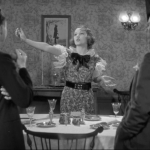
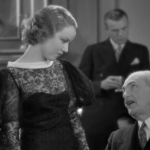

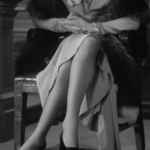
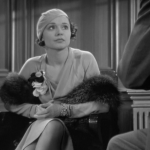
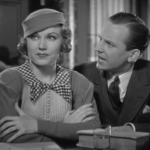

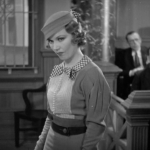
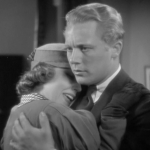
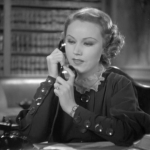
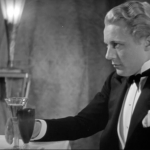
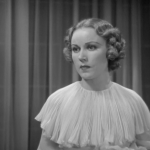
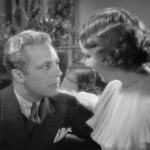
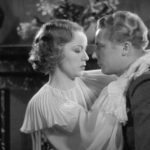
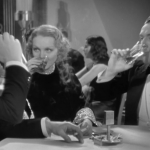
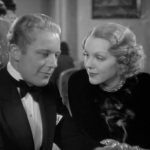
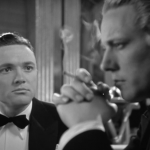
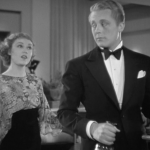
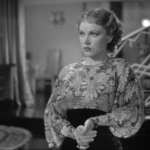
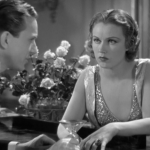
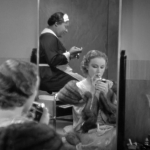
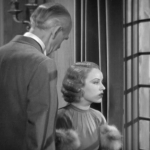
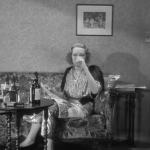
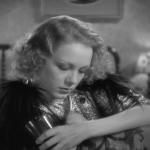
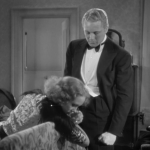
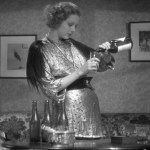
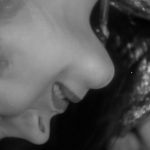
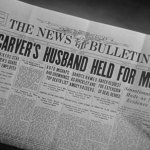
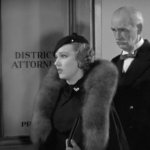
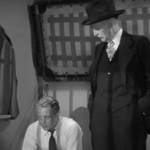
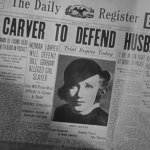
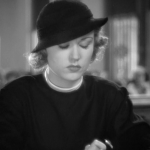

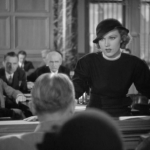
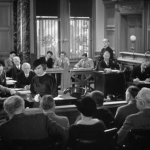
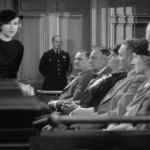
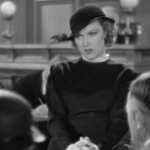
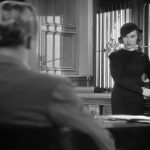
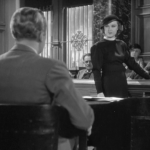
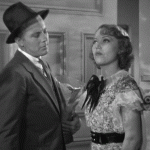


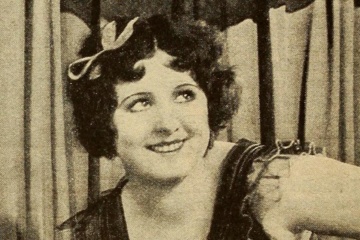
1 Comment
Jeannie MacDonald · May 10, 2021 at 10:39 am
If you like Fay Wray, I can highly recommend the memoir written by her daughter Victoria Riskin. It not only covers her mother’s blissful marriage to Capra’s favorite screenwriter (Robert Riskin), but it captures what Hollywood was like in the ’20s, ’30s, ’40s and beyond. It’s called “Fay Wray & Robert Riskin: A Hollywood Memoir.”
Comments are closed.